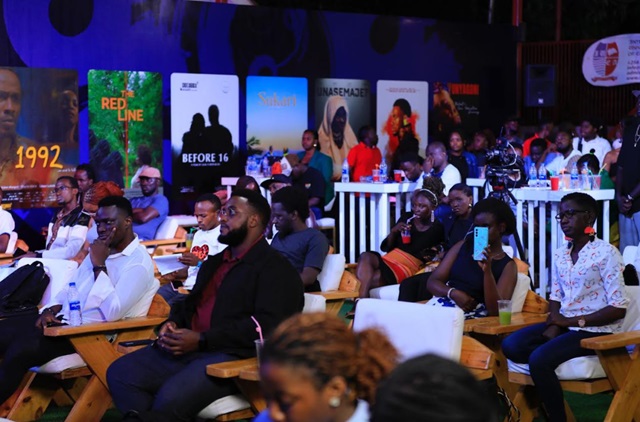
Kampala, Uganda | THE INDEPENDENT | Reach a Hand Uganda and Sauti Plus Media Hub have premiered a collection of eight compelling short films centered on Sexual and Reproductive Health Rights and Justice (SRHRJ) in East Africa.
The fiction and documentary films are part of the Get Reel project – which is facilitated by Docubox, an East African Documentary film organisation dedicated to amplifying voices and fostering social change with support from the Hewlett Foundation and the Wellsprings Philanthropic Fund.
They include: Unasemaje (fiction), Unyagoni (documentary), Before Sixteen (documentary) Detour (fiction), Jimbi (fiction), Sukari (fiction), 1992 (fiction), and Red Line (documentary).
The filmmakers were immersed in expertise, discussions, and news about SRHRJ, and the resulting films seek to address the urgent yet often overlooked issues surrounding SRHRJ.
The premiere took place at the International University of East Africa on Friday and was attended by development partners, filmmakers, Sexual and Reproductive Health and Rights advocates, and young people.
While delivering the keynote address during the event, Teddy Chimulwa – the National Project Officer at UNESCO Uganda, said, “These stories are not just entertainment, but also tools for advocacy which will reach policymakers, community leaders, and ordinary citizens to raise awareness and encourage action on SRHR issues that affect Africa and Uganda in particular.”

She further called on government officials, policymakers, and health practitioners to invest more in creative platforms that allow young people to speak out on issues affecting their sexual and reproductive health and support young creatives both financially and technically to ensure their stories reach the widest audience possible.
The event also featured a panel discussion with Natasha Nyonyozi – Miss Uganda 2024, Elizabeth Kemigisha – Advocacy and Policy Manager at FIDA Uganda, Sheila Kasabiiti – Programs Manager at Reach A Hand Uganda, filmmakers Rianne Bateeze and Ivan Tusabe.
Tusabe – who directed ‘Jimbi’ – one of the 8 films, said, “As a filmmaker, you want to create something which has meaning and delivers a message, and my film is about standing against sexual violence in our communities. The message I’m trying to put across is that it all starts with us. If you see something happening, always try to help in any way you can. It’s easier to tackle these issues as a community or as a group as opposed to individually.”
Reach A Hand’s Kasabiiti added, “As an organisation, we have embraced film as a great tool through which we can change narratives and help audiences go beyond understanding SRHR and towards seeking justice. We have seen young people in communities face these issues and remain silent because they might not be aware of the laws in place to protect them or help them seek justice. Therefore, having such films that show young people that they are not meant to sit and suffer in silence is a powerful medium that needs to be supported.”
The screening and discussions were followed by an energetic performance from Allan Toniks.
 The Independent Uganda: You get the Truth we Pay the Price
The Independent Uganda: You get the Truth we Pay the Price





